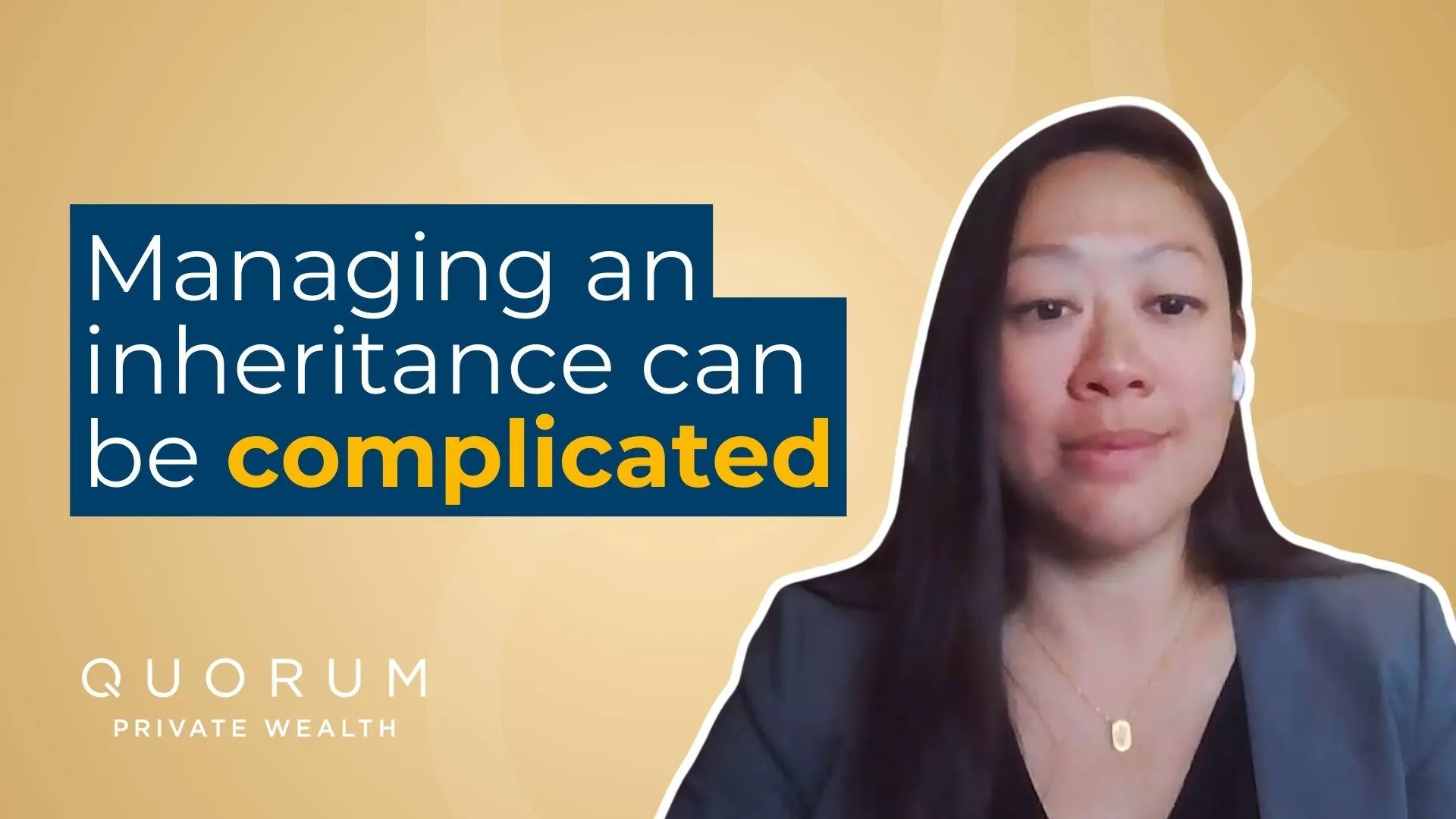There’s a proverb about wealth that’s so prevalent we see versions of it across countries and cultures: shirtsleeves to shirtsleeves in three generations. In other words, family wealth never survives more than three generations. The Scots put it even more bluntly: The father buys, the son builds, the grandson sells, and his son begs.
To put the proverbs in perspective, a 20-year study by the Williams Group found 70% of wealth is lost in the first generational transfer, and a full 90% by the third. Additional studies have shown that these monetary losses often translate to family strife.
So how can you preserve the wealth you’ve built for your family for generations to come? Be intentional about your money and what you’re building, create an estate plan that provides for future generations, and keep up with financial planning.
Be intentional
If you have $100 in your pocket, how likely are you to spend it if you stumble upon something you really want? What if you had earmarked that $100 as going towards the down payment on a house? Most of the time, simply earmarking $100 in advance causes people to think twice about spending decisions.
The same thing is true about building wealth at scale. If you’re simply accumulating money, it’s like carrying a stack of cash around for the sake of it. If you start building wealth with purpose and intention, however, it’s easier to make decisions that align with your goals.
If building generational wealth is one of your goals, this concept is even more important. You’ll likely want to share your values with future generations. After all, you can only do so much to influence what future generations do with the nest egg you share. Being intentional about what you value, and sharing those values with your children and grandchildren, can be just as important as passing down assets.
Read our guide to building wealth with intention (and how family meetings can help).
Create an estate plan
An estate plan dictates, quite literally, how you will pass your wealth on to the next generation(s).
What the estate planning process entails—including what legal framework you use—will vary based on personal circumstances. But these plans tend to include a will, health care directive, details about powers of attorney, and a trust(s). The type of trust will likely depend on your assets (family business versus investments versus real estate, and so on) and priorities (tax minimization, control over how funds are used, and so on).
Trusts and wills are legal documents; you should work with an attorney who specializes in estate planning to get the best information and advice for your circumstances. A financial advisor can work with your estate planning attorney, as well as any other members of your financial team (like a tax attorney or accountant) to help with estate planning strategy and execution.
Some of the topics to review with an estate planning team include estate and inheritance taxes (both federally and by state), location (where you and your heirs reside), and your wishes (including how you want them carried out). The conversations you’ve had with your family can help inform what you discuss with your team.
Tip: Make sure you go in with a “more than money” mindset. Remember, you may need to think about who makes decisions and controls or manages assets in addition to dollar amounts.
Create a financial plan (then do it again)
At the end of the day, preserving wealth has a purely financial component to it. You want to make sure that your family’s wealth is invested wisely so it stands the test of time. Many people stick to a strict financial plan as they build wealth but may start to drift away over time (and generations). Each family member should have a current financial plan that factors in:
- Diversification. When it comes to building generational wealth, diversification can take on an even bigger role. It can extend beyond a diverse investment portfolio of stocks and bonds to include private investments, alternative assets, and more. Beyond that, you might add time as a new criterion—you might make an investment now hoping it pays off in 100 years.
- Income and growth. First generation wealth builders tend to focus on growing wealth. However, the second and third generation may be more focused on living off their wealth. This can be a major contributor to the three-generation curse.
- Risk. Wealth enables risk-taking—a wealthy investor can typically weather a total loss better than someone with a smaller nest egg. As such, younger generations sometimes make high-risk investments in the “next big thing” hoping to future-proof their fortunes. But even the ultra-wealthy have a threshold for risk. A financial advisor can help you assess what level of risk is appropriate to your goals—this doesn’t mean no high-risk investments, but it may mean allocating a specific percentage of your overall portfolio (say 5%) to those pursuits.
- The basics. Rich people are just as likely as poor people to spend more than they earn, take on high interest debt, or fail to plan for big expenses. Make sure your financial plan extends beyond long-term wealth; it should include strategies for optimizing your monthly living expenses, minimizing your taxes, and so on.
Tip: Work with a team of professionals. Wealth can be complicated—and it’s nearly impossible to be an expert in every facet of building and maintaining wealth across generations. A trusted team of experts can help you cover your blind spots. Make sure you’re working with a team that you are comfortable with (you don’t have to use the same providers as your family). Don’t be afraid to ask members of your financial team what they do, how they’re paid, and whose interests they represent.
Quorum can work with you and the other members of your financial team to create a plan for lasting wealth.









